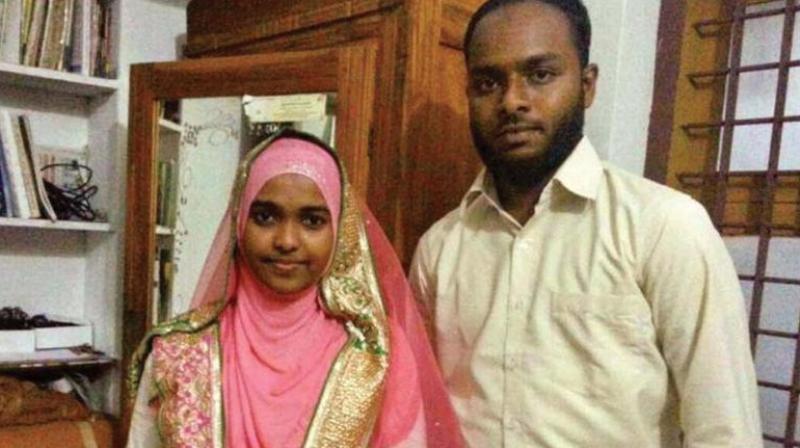SC rejects basis of love jihad'
The court's judgment has the effect of outlawing love jihad as a concept.

The Supreme Court’s ruling on Thursday upholding the validity of the marriage of a young Hindu adult in Kerala, Akhila Asokan, who converted to Islam in 2016 and took the Islamic name of Hadiya, and married a young Muslim man, Shafin Jahan, in July, is important on several grounds. The three-judge bench, headed by the Chief Justice of India, drew pointed attention to an important aspect of the Constitution — that an adult of sound mind can choose to follow any religion (or not follow any) and marry anyone at all, even by giving up the religion of her/his parents.
Families and the wider society often interfere in matters that the judgment dealt with, and unthinkingly intrude upon an individual’s inherent right to privacy, which an earlier judgment of the court held was like a fundamental right.
Worryingly, the political space captured by the RSS-BJP in recent times has permitted prominent individuals associated with it to endorse the egregious idea of “love jihad”, which seeks to suggest that Muslim men are coercing or inveigling Hindu women into marriage with a view to religious conversion. The court’s judgment has the effect of outlawing “love jihad” as a concept. In doing so, it holds the Kerala high court — which had annulled Hadiya’s marriage last year — guilty of wrongheaded deliberation. If there is forced conversion or marriage on false grounds, it must be duly established in court. The Supreme Court has also essentially thrown cold water on the ardour of the National Investigation Agency, which now says it has no evidence that the young couple had planned to escape to Syria to join ISIS.

